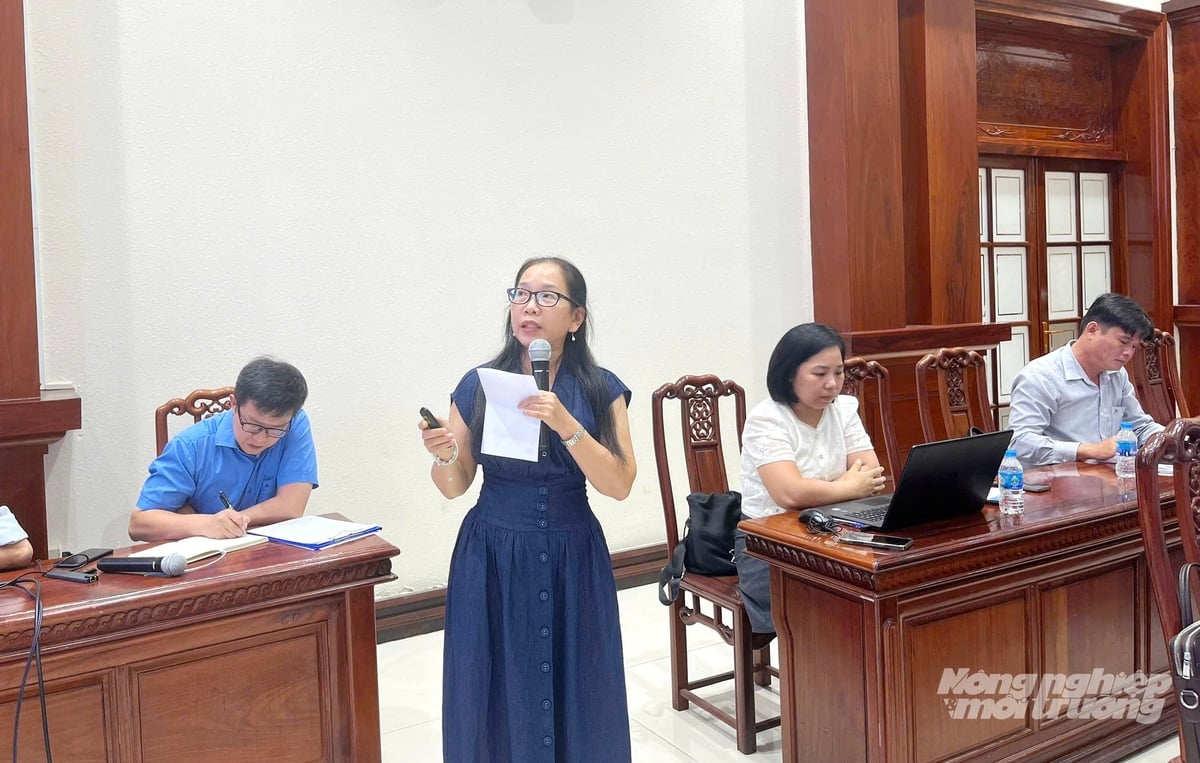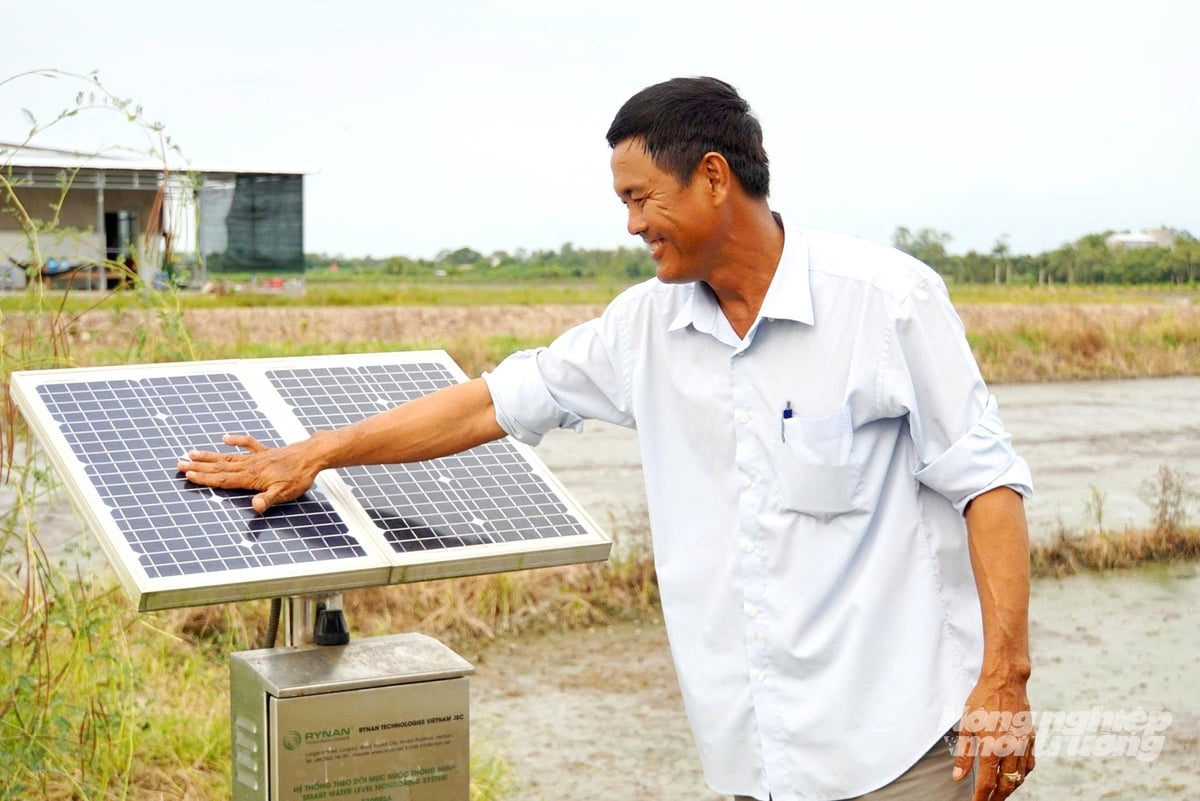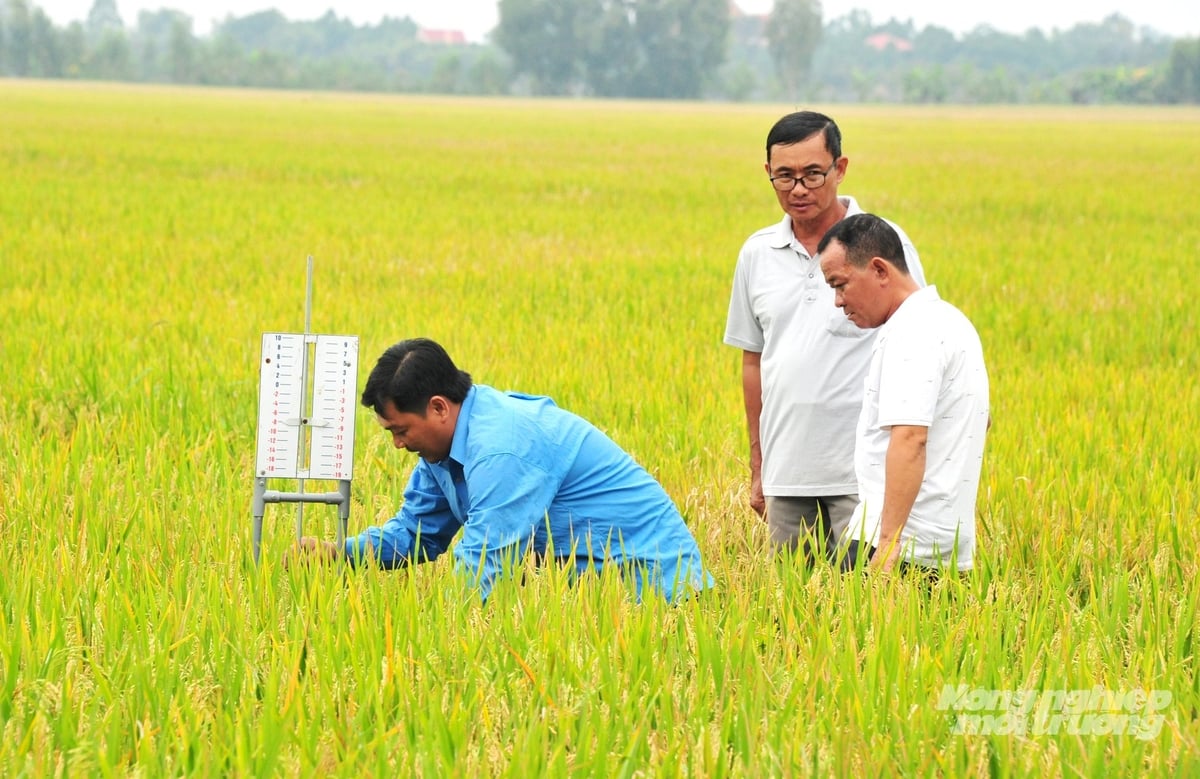December 26, 2025 | 16:26 GMT +7
December 26, 2025 | 16:26 GMT +7
Hotline: 0913.378.918
December 26, 2025 | 16:26 GMT +7
Hotline: 0913.378.918
On September 8, at the Dong Thap Provincial Conference Center, the Department of Crop Production and Plant Protection (Ministry of Agriculture and Environment), in collaboration with the International Center for Tropical Agriculture (CIAT), organized a workshop titled "Review of the agro-climatic bulletins implementation results and planning for the 2025-2026 winter-spring crop."
The workshop attracted around 70 delegates from management agencies, research institutions, the Southern and Central Highlands Hydrometeorological Stations, as well as representatives from Mekong Delta provinces.
The event set out four main objectives: to update the progress of the agro-climatic bulletins implementation up to the end of August 2025; to share challenges and solutions for maintaining and scaling up the model; to develop the plan for the 2025-2026 winter-spring crop; and to discuss orientations for improving and digitalizing the bulletins in the future.

Department of Crop Production and Plant Protection presents the implementation results of the agro-climatic bulletins at the mid-term review workshop held in Dong Thap. Photo: Le Hoang Vu.
Ms. Tran Thi My Hanh from the Department of Plant Production and Protection announced consolidated results on the development and dissemination of the agro-climatic bulletins in the Mekong Delta region. In particular, the orientation toward digitalization was emphasized, with the aim of delivering weather forecasts and cultivation recommendations down to the commune and ward levels, enabling farmers to access timely information easily. Local technical teams also presented their results, challenges, and proposed solutions for the next phase.
According to her, agro-climatic bulletins are not only a forecasting tool but also serve as a bridge between meteorological information, state management, and agricultural production activities. This helps farmers be more proactive in responding to climate change, reduce risks, and improve production efficiency.
The agro-climatic bulletins were initiated and piloted in the Mekong Delta in 2020. Its content is based on seasonal, monthly, and 10-day weather forecasts, combined with inputs from agricultural experts, extension officers, hydrometeorological staff, and practical feedback from farmers. By 2023, the Ministry of Agriculture and Environment recognized it as a technical advancement and directed its scale-up across all 13 provinces of the Mekong Delta.

Farmers in the Mekong Delta apply technology to monitor weather and water levels using solar-powered devices, contributing to safe and sustainable rice production. Photo: Le Hoang Vu.
With its scientific and practical nature, the agro-climatic bulletins are providing tangible support to management agencies in directing production, while also serving major objectives such as the National Climate Change Adaptation Strategy, the One Million Hectares of High-Quality, Low-Emission Rice Program, and the Agricultural Digital Transformation Program.
According to Ms. Le Thi Tam, representative of CIAT, as of the second quarter of 2025, the agro-climatic bulletins have been implemented in 714 communes and wards across 13 Mekong Delta provinces. More than 55,000 people have subscribed to receive the bulletins via Zalo, while about 320,000 others have accessed the information through loudspeakers, posters, and training sessions. This demonstrates not only the bulletins’ broad reach but also the genuine demand from farmers.
A key highlight of the agro-climatic bulletins is that they are concise, easy to understand, include illustrative images, and closely follow each stage of crop growth. Thanks to this, farmers can quickly grasp the recommendations and apply them directly in their production. Many households have reported that using the bulletins has helped reduce production costs and minimize losses caused by pests and abnormal weather.

Technical staff and farmers monitor the fields and update information from the agro-climatic bulletins to adjust production for the winter-spring crop accordingly. Photo: Le Hoang Vu.
The workshop in Dong Thap also reached a consensus on key directions, such as continuing to maintain and expand the scope of the bulletins’ dissemination. It emphasized strengthening coordination among meteorological agencies, agricultural authorities, and local governments, while simultaneously promoting digitalization so that farmers can easily access the information through smartphones and social media.
“The agro-climatic bulletin, with the support of CIAT and the Department of Crop Production and Plant Protection, is becoming an essential tool to help the Mekong Delta’s agriculture proactively respond to climate change. This is also an important step to ensure that the 2025-2026 Winter-Spring crop and subsequent seasons are carried out safely and effectively, moving towards the goal of sustainable agricultural development,” affirmed Ms. Le Thi Tam, representative of CIAT.
Translated by Kieu Chi

(VAN) 'People, Primates, Plants: Co-managing Biodiversity and Improving Livelihoods in Vietnam' (the PPP Project) is an international initiative implemented in Vietnam by BGCI, CEGORN, and ICRAF/World Agroforestry.

(VAN) Dak Nong established a risk-level zoning map for coffee, built a digital data platform for the sector, and promoted certified production in line with EUDR.
/2025/12/25/2709-1-211551_295.jpg)
(VAN) In response to the U.S. Marine Mammal Protection Act (MMPA), Gia Lai province is implementing many solutions to protect marine mammals and develop sustainable, responsible fisheries.

(VAN) In modern livestock farming, vaccination and proactive disease prevention keep pigs healthy, secure productivity, and reduce dependence on antibiotics.

(VAN) Ca Mau’s veterinary sector immediately implemented culling and isolation after detecting just one African swine fever outbreak in Thoi Binh commune.

(VAN) Kim Anh commune (Hanoi) is proactively implementing multiple measures to create biosecurity shields that protect livestock herds and local livelihoods.
/2025/12/25/3648-6-150830_967.jpg)
(VAN) A conference summarizing the second emission-reducing rice crop in Dong Thap recorded positive economic and environmental results, boosting the low-carbon rice model in the Mekong Delta.